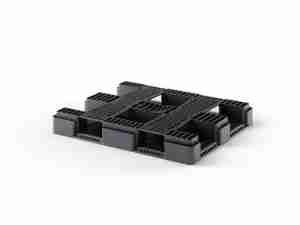Record tumble in Japan machinery orders casts doubt on Abenomics
By: Reuters | Feb 17 2014 at 06:10 PM | Logistics
Japan's core machinery orders suffered their steepest fall on record in December, a worrying sign that the manufacturing sector is not doing the heavy lifting required for a durable recovery in the world's third-biggest economy.
The 15.7 percent slump in orders, a leading indicator of capital expenditure, was much worse than a projected 4.1 percent decline and was the largest in comparable data available from fiscal year 2005.
The data could fuel scepticism of Prime Minister Shinzo Abe's reflationary policies, known as "Abenomics", which has combined a massive injection of fiscal and monetary stimulus to pull the economy out of a decades-long slump.
Tokyo has yet to make structural reforms and foster confidence in growth that could convince manufacturers, which have steadily moved offshore to escape a stagnant economy and rising costs, that they should spend more at home instead of abroad.
Last week, Denso Corp, one of the world's leading auto parts makers, raised its capital spending target for the
year to end-March to 305 billion yen ($2.98 billion) from 280 billion yen, but said the additional money would be used mainly to boost production capacity overseas.
"We're having particular success expanding sales overseas, while another factor was that one of our customers moved forward a bit the timeframe for their buildup to production, but this was also focused overseas," Denso
It underscored the challenges facing Japanese policymakers as a central plan of Abenomics is to spur capital spending to create a virtuous cycle of job creation, higher wages and \ consumer spending.
The aggressive stimulus has delivered some success, with the economy rebounding over the past year, consumer confidence rising and inflation accelerating to a five-year peak to the half-way point of the Bank of Japan's 2 percent goal.
However, the reluctance of manufacturers to ramp up their capital spending at home threatens to erode the economic gains made in the past year.
"The data confirmed companies remain wary of boosting capital spending," said Takeshi Minami, chief economist at Norinchukin Research Institute in Tokyo.
"Non-manufacturers are turning cautious after leading capital spending last year as consumers rush to buy ahead of a sales tax hike. Now manufacturers hold the key for the outlook of capital spending," he said.
Reforms Slow
Abenomics has so far failed to come up with reform steps like a long called-for cut in the effective corporate tax rate. Unless Abe takes such big steps to encourage business activity, manufacturers will continue to shift production abroad in favour of business investments at home.
Japan's effective corporate tax rate is at some 35 percent, among the highest in the developed world and much higher than other Asian economies that are attracting Japanese investments.
In another sign of the uphill task facing policymakers, wages are lagging behind the ongoing economic recovery. Recent data showed wage earners cash earnings stopped falling in 2013 for the first time in three years but they remained mired at record lows.
The Cabinet Office data on Wednesday also included a survey that forecast 2.9 percent fall in orders for January-March - which would be the first drop in four quarters. Still, it also showed the value of core machinery orders at 2.4 trillion yen $23.44 billion in October-December, the highest since the third quarter of 2008, when the Lehman crisis triggered the global financial crisis.
The latest monthly Reuters Corporate Survey, conducted last month, was similarly encouraging. It showed that a quarter of Japanese firms polled plan to raise capital spending in the next financial year ending March 2015, although the near term looks less promising.
Much of the big spending is occurring in the non-manufacturing sector.
Service-sector firms have increased output before a sales tax increase scheduled for April, though analysts expect these industries to lose momentum as demand runs its course.
Yamato Holdings Co, Japan's largest parcel delivery company, is boosting spending 61 percent to 85 billion yen in the year to end-March as it builds out warehousing and logistics centers across Japan.
However, companies have been cautious about opening the taps further on spending despite BOJ data that shows corporate Japan sits on a cash pile of some 220 trillion yen.
Capital spending has been anaemic for years, with Japanese firms hesitant to boost investment on plants and equipment, because of a deep-rooted view that Japan would remain mired in
The BOJ, which holds a regular policy review next week, has kept policy steady after embarking on an aggressive stimulus last April, pledging to double base money via aggressive asset purchases to spur inflation to 2 percent in roughly two years.
Gross domestic product data due on Feb. 17 is likely to show the economy expanded 0.7 percent in October-December, or 2.8 percent annualised, with capital spending rising 1.9 percent to mark a third straight quarter of gains, according a Reuters poll of analysts. (Reuters)









